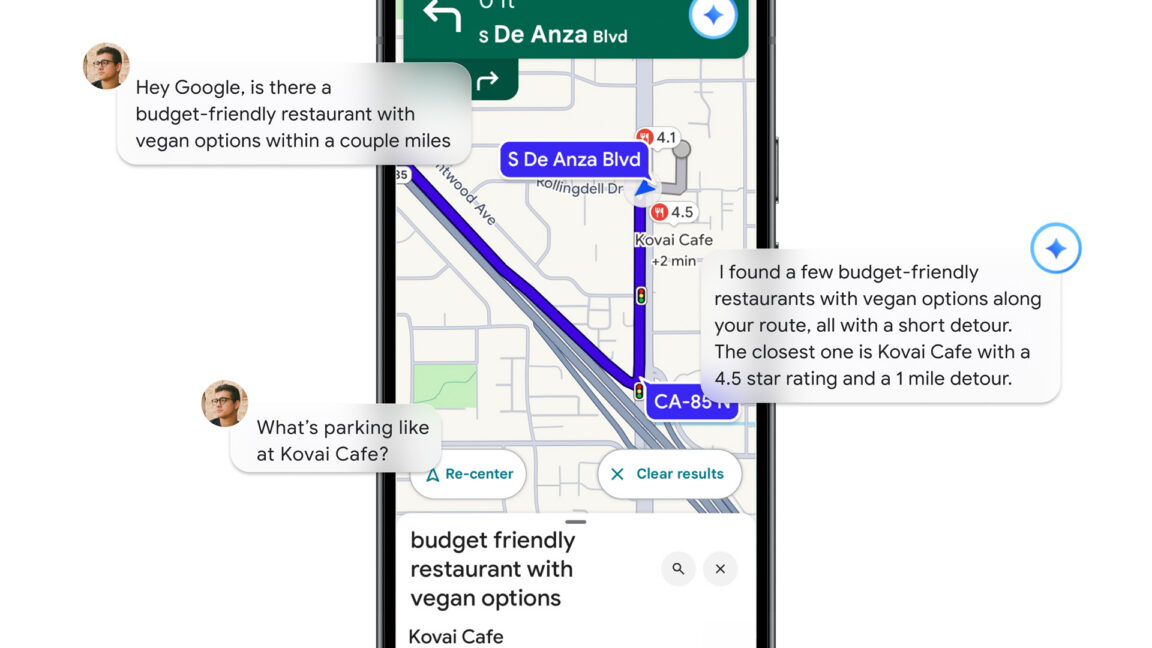Google Introduces Gemini AI to Maps, Phasing Out Assistant

Key Points
- Google begins rolling out Gemini AI within Google Maps.
- Gemini replaces the Google Assistant’s role in the app over time.
- The AI handles complex, multi‑part queries about locations and routes.
- An upgraded Lens feature provides instant answers about nearby places.
- Responses are grounded in Google’s extensive place listings and Street View data.
- Google states Gemini "is not responsible for choosing your route."
- The transition will be gradual, with Assistant still active for some users.
- Gemini integration reflects Google’s broader push for generative AI across services.
Google is rolling out its Gemini generative AI model within Google Maps, beginning to replace the Google Assistant’s role in the app. Gemini will power new conversational navigation, location information, and a Lens feature that answers questions about nearby places. The company says Gemini’s responses are anchored in its extensive place listings and Street View data, reducing the risk of hallucinations. While the transition will take time, the move signals a shift toward deeper AI integration across Google’s services.
Gemini Takes the Wheel in Google Maps
Google has started to embed its Gemini generative AI model into Google Maps, marking the first step in a broader effort to retire the Google Assistant from the navigation app. Gemini will power conversational experiences that let users ask complex, multi‑part questions about routes, nearby businesses, and other location‑based information.
Enhanced Conversational Capabilities
Unlike the earlier Assistant, which struggled with handling multiple requests at once, Gemini can process more elaborate instructions. For example, a user can ask for inexpensive vegan restaurants and receive tailored suggestions rather than a simple list. The AI also provides richer details about a place, such as menu options or interior descriptions, through an upgraded Lens feature that works after a user parks.
Grounded Responses Reduce Hallucinations
Google acknowledges that generative AI can produce hallucinations, but the Maps team says Gemini’s answers are anchored in the company’s massive repository of place listings and Street View imagery. This grounding is intended to keep the AI from fabricating locations or providing inaccurate data. The company emphasizes that Gemini is not responsible for routing decisions, stating explicitly that it "is not responsible for choosing your route."
Transition Timeline and User Impact
The rollout will be gradual, meaning the Google Assistant will continue to operate in Maps for some users while Gemini expands its coverage. Over time, users can expect more seamless, AI‑driven interactions that go beyond basic navigation, including the ability to ask follow‑up questions and receive context‑aware answers.
Future Outlook for Google Services
Gemini’s integration into Maps is part of a larger strategy to embed generative AI across Google’s product suite. By enhancing location‑based services with sophisticated conversational abilities, Google aims to create more intuitive and helpful user experiences while maintaining accuracy through its extensive data assets.